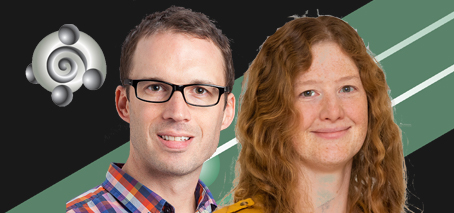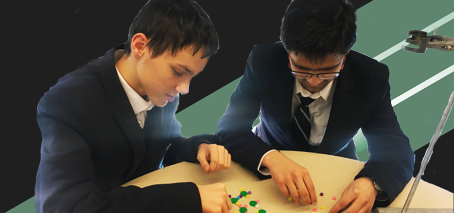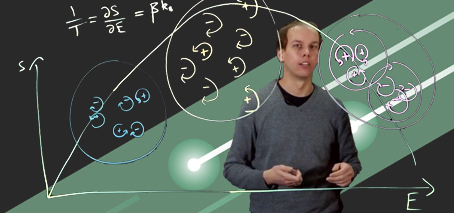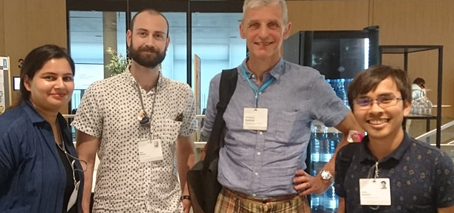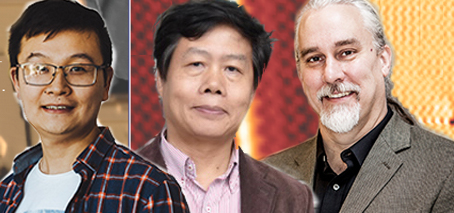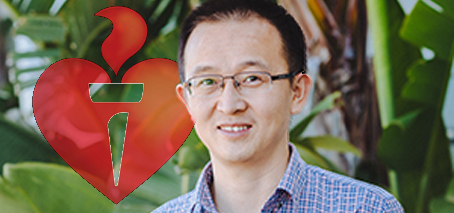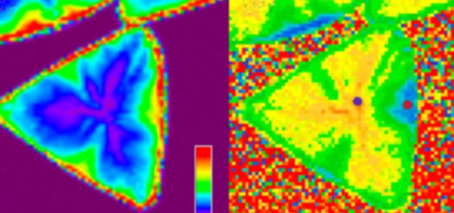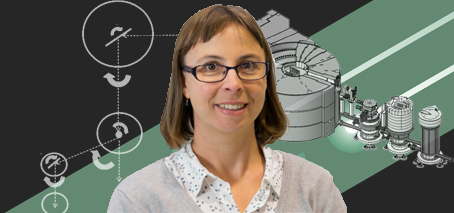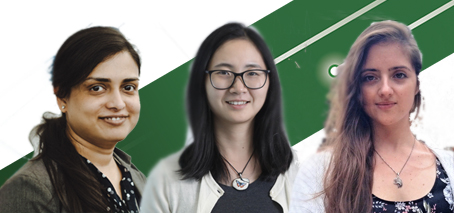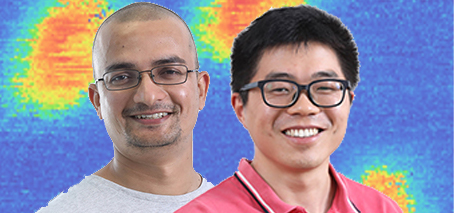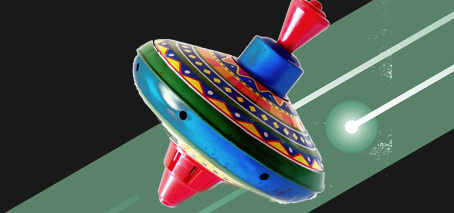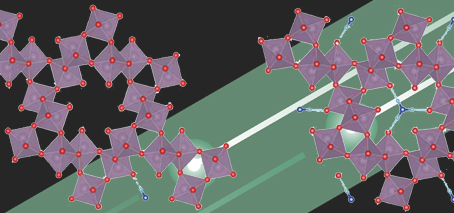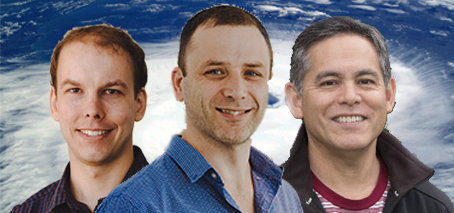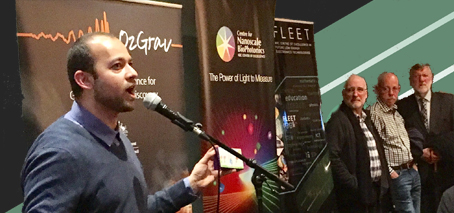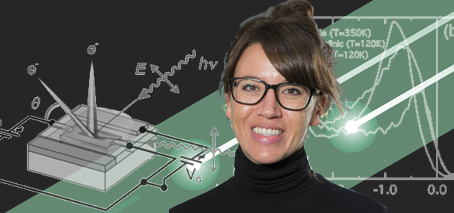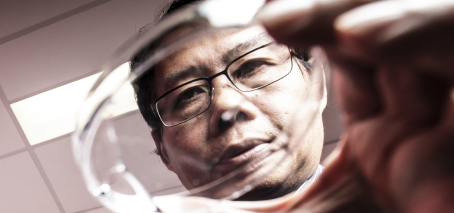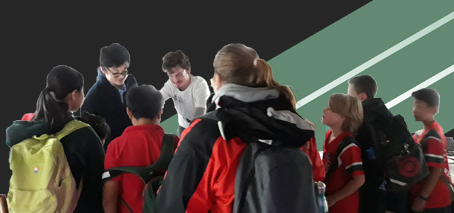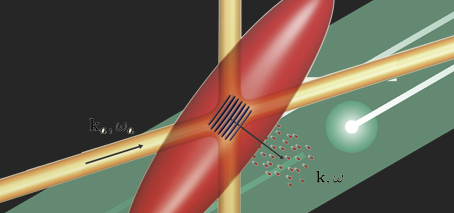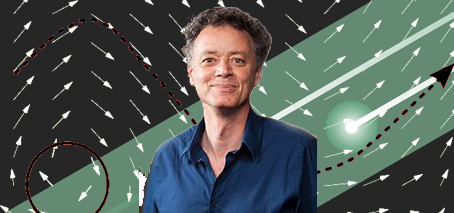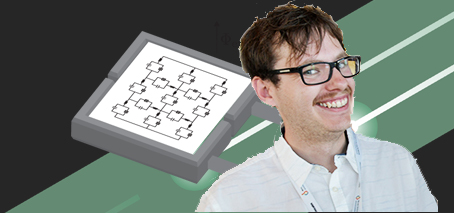Congratulations to FLEET PhD student Stuart Burns, who submitted his PhD thesis recently, and whose hard work was rewarded by a rare UNSW scholarship to continue to carry out research while his thesis is being reviewed. Stuart is a PhD candidate working with Prof Nagy Valanoor and Dr Daniel Sando at UNSW to study the functional behaviours of ferroelectrics at …
New Trans-Tasman research will aid search for sustainable future computing: FLEET-MacDiarmid partnership signed
Ahead of this weekend’s Climate Action Summit in New York, FLEET (Australia) and the MacDiarmid Institute (New Zealand) today announced a new partnership between the two science organisations, which share a mission to search for future low-energy electronics via the development of novel materials and devices. MacDiarmid is the premier centre for materials research in NZ, and co-Directors Professor Justin …
FLEET/UNSW scientists sharing their passion for science: Science outreach in August
—by Cecilia Bloise, Node Coordinator, UNSW There’s nothing like a strong dosage of outreach to get the ‘cats out of the box’ into the public sphere. The FLEET Centre of Excellence invests significant resources into science-outreach, aimed to inspire stronger engagement with science across all levels of the community, from primary and secondary school students to the broader population. Beyond …
Gutsy effort to produce comprehensive study of intestinal gases
A source of embarrassment to some, or pure comedy to others, flatulence and the gases of the intestines are increasingly seen as playing an important role in our digestive health. A paper led by UNSW Sydney and published in Nature Reviews Gastroenterology & Hepatology has examined all available literature on gastrointestinal gases, their interactions with the microbiome of the gut, …
Introducing future electronics at secondary-school level
FLEET is currently helping to run a Year 10 ‘Future electronics’ course in partnership with John Monash Science School, Victoria. As well as covering the history of semiconductors and computing, and introducing students to Moore’s Law, the course will also be most students’ first introduction to quantum science, and will be Australia’s first introduction to superfluids and topological materials at …
Impossibly cool: Negative absolute temperatures
—by Dr Shaun Johnstone (Monash University) and Dr Tapio Simula (Swinburne University of Technology) One of the first things we learn about the absolute temperature scale, measured in degrees Kelvin, is that it’s impossible to get temperatures below Absolute Zero. But in a recent pair of FLEET studies into turbulence, researchers were working in a regime of precisely that: negative …
Lindau report
Three FLEET ECRs were fortunate to attend the 69th Nobel laureate meeting in Lindau, Germany, forming an impressive 30% of Australia’s ten-person delegation elected and led by the Australian Academy of Science. This year’s meeting focused on physics, and a number of senior FLEET were amongst the laureates. Our ECRs were pleased to connect with Wolfgang Ketterle, William Phillips, and …
Experimental observation of a new class of materials: excitonic insulators
First observation of excitonic insulator New exotic state was first predicted in 1960s A University of Wollongong / Monash University collaboration has found evidence of a new phase of matter predicted in the 1960s: the excitonic insulator. The unique signatures of an excitonic insulating phase were observed in antimony Sb(110) nanoflakes. The findings provide a novel strategy to search for …
AI Yuerui Lu recognised by Heart Foundation
FLEET Associate Investigator Professor Yuerui Lu (ANU) has been named a Heart Foundation Future Leader Fellow. The innovation of Professor Lu’s research, which focuses on the next-generation high-throughput 3D microscopy for cardiovascular imaging, was also recognised by the Foundation’s Paul Korner Innovation Award. This project aims to demonstrate proof of the concept for a novel high-throughput 3D microscope using ultra-thin, …
Lights out: Putting the ambient air oxidation of Monolayer WS2 to bed
Oxidation of monolayer WS2 in ambient requires exposure to light, and keeping samples in darkness can protect from oxidation Routine exposure to room lights (days) or light microscopes can cause significant oxidation, suggesting wide reaching implications for current and future studies of monolayer S-TMDs To protect monolayer semiconductor transition metal dichalcogenides (S-TMDs) from oxidation, they must be entirely shielded from …
Congratulations: Dianne Ruka, exceptional service award
Congratulations to FLEET’s outreach officer Dr Dianne Ruka, winning the Award for Exceptional Service to the Faculty of Science at Monash University. Dianne leads the education and training missions for FLEET across all seven collaborating universities, supporting staff and students across both Monash’s Science and Engineering Faculties, through science outreach programs. Since joining FLEET in 2017, Dianne has combined her …
Kirrily Rule Partner Investigator
Welcome to Kirrily Rule (ANSTO), who joins FLEET as a new Partner Investigator. Dr Kirrily Rule is an internationally-recognised leader in understanding low-dimensional and ‘frustrated’ magnetic materials. At ANSTO, she is one of three instrument scientists responsible for ANSTO’s triple-axis spectrometer TAIPAN , which provides highly detailed information of collective motions of atoms in solids, including phase transitions. Within FLEET, …
Women in FLEET Fellowships
FLEET’s goal is to achieve 30% representation of women at all levels across FLEET. To begin to move towards this goal, we needed innovative approaches that would allow us to begin ‘shifting the dial’. One innovative initiative that has met with success was FLEET’s new women-only Fellowships, offered in multiple locations, and across all fields of study in the Centre. …
Three new research fellows join FLEET
FLEET welcomes three new research fellows, who will be working in diverse roles across the Centre: Dr Semonti Bhattacharyya (Monash) Dr Peggy Qi Zhang (UNSW) Dr Iolanda Di Bernardo (Monash) The three new positions have been filled via the Women in FLEET fellowship, which forms part of FLEET’s mission to create workplace diversity and retain female scientists within STEM. Dr …
Welcome Francesca Iacopi, new Associate Investigator
Welcome to Francesca Iacopi, who joins FLEET as a Scientific Associate Investigator. Professor Iacopi has over 20 years’ industrial and academic research expertise in semiconductor technologies, and currently leads Communications and Electronics Engineering at the University of Technology, Sydney. Francesca’s work at UTS translates scientific advances in nanomaterials and novel device concepts into implementable technologies. Within FLEET, she will investigate …
First observation of native ferroelectric metal
In a paper released today in Science Advances, UNSW researchers describe the first observation of a native ferroelectric metal. The study represents the first example of a native metal with bistable and electrically switchable spontaneous polarization states – the hallmark of ferroelectricity. “We found coexistence of native metallicity and ferroelectricity in bulk crystalline tungsten ditelluride (WTe2) at room temperature,” explains …
Collaboration unlocks new magnetic properties for future, faster, low-energy spintronics
• RMIT–UNSW collaboration combines theory, experimental expertise • ‘Spintronic’ applications promise faster, more efficient computing • New magnetic properties of 2D Fe3GeTe2 (FGT) discovered A theoretical–experimental collaboration across two FLEET nodes has discovered new magnetic properties within 2D structures, with exciting potential for researchers in the emerging field of ‘spintronics’. Spintronic devices use a quantum property known as ‘spin’, in …
Meet molybdenum, an acid-free route to future Hydrogen power?
Molybdenum based compounds could provide key to hydrogen production for future zero-emissions energy RMIT/Monash collaboration opens promising route towards alkaline hydrogen production A FLEET study combining experimental expertise at RMIT with theoretical modelling at Monash University opens a new route towards efficient, cost-effective production of hydrogen. Researchers discovered that ammonium-doped, hexagonal molybdenum oxide (MoO3) displays extremely promising electronic and material …
Order from chaos: Australian vortex studies are first proof of decades-old theory
Seminal, seventy-year-old theory of turbulence experimentally verified for first time Applications range from Jupiter’s Great Red Spot to electron movement in superconductors Images and video available Two Australian studies published this week offer the first proof of a 70-year-old theory of turbulence. “The studies confirm a seminal theory of the formation of large-scale vortices from turbulence in 2D fluid flow, …
COEs partner up for pitch training and physics on-stage
Three events last week allowed FLEET members to develop valuable, transferable communications and outreach skills, as well as providing a chance for FLEET to strengthen links with other ARC Centres of Excellence. A pitch training session for researchers from three ARC Centres introduced key communications concepts such as choosing the most effective lead, tailoring the pitch to the audience, presenting …
Using disorder to build new materials for low-energy electronics: welcome new FLEET AI Julie Karel
Dr Julie Karel conducts research at the intersection of materials science and condensed matter physics to develop new materials for emerging low-energy nanoelectronic and magnetoelectronic devices. Originally from the US, Julie developed new thermal interface materials to improve mobile-device performance at Intel, and was a postdoctoral researcher at the Max Planck Institute in Germany. In materials design, Julie uses complete …
Tuning the topological insulator Sb2Te3: just add iron
Iron-doping of the topological insulator Sb2Te3 results in useful electronic and magnetic properties, quantified in a recent FLEET study at the University of Wollongong. The researchers studied the magneto-transport properties of an iron-doped topological insulator (Fe–Sb2Te3). After the material is doped via the addition of iron, its electronic structure changes significantly: multiple response frequencies emerge, in contrast to the single …
Flying the future-computing flag at Melbourne Knowledge Week
Over a dozen FLEET researchers flew the flag for FLEET and future computing at the recent Melbourne Knowledge Week showcase. Reps introduced the public to ICT energy use, electromagnetism, superconductivity (via FLEET’s supercooled Mobius track) , and the mechanics of binary operations that underlie all modern computing, via the Centre’s two Digicomputers. The superconducting track and Mobius track proved the …
Ultra-cold lithium atoms shed light on pair formation in superfluids, helping identify best theories
• Abrupt onset of pairing points to best theories for describing ultra-cold ‘Fermi gases’ • Implications for understanding of superconductors, superfluids in future ultra low-energy electronic systems A FLEET/Swinburne study released this week resolves a long-standing debate about what happens at the microscopic level when matter transitions into a superconducting or superfluid state. Correlations between pairs of atoms in an …
Deciphering the fundamental physics of ferroelectricity at the nanoscale
Welcome new AI Laurent Bellaiche Welcome to Prof Laurent Bellaiche, whose ongoing research collaborations with FLEET are recognised by him becoming a Centre Scientific Associate Investigator. At the University of Arkansas (US), Prof Bellaiche leads first-principles-based theoretical studies of ferroelectrics, magnetic compounds, multiferroics and other semiconductors. He has co-authored over 310 refereed journal articles, his publications have been cited more …
New Josephson junction study links quantum theory to experiment
The Josephson junction is one of the most important elements in turning quantum phenomena into usable technology. A new RMIT study establishes a theoretical framework for new optical experimentation on these key devices, with implications for future fundamental quantum research and applications such as quantum computing. Josephson junction studies Josephson junctions can be formed by two superconducting plates, separated by …
Topological physics finds Famelab success
Congratulations to FLEET’s Sam Bladwell (right, UNSW), who won the NSW semifinal of Famelab, talking about study of electron spin, and will now compete in the finals in Perth on May 8th. Topological physics has done particularly well in this year’s Famelab, with FLEET associates Dr Semonti Bhattacharyya and Dr Antonija Grubisic-Cabo (Monash University) also qualifying for the Victorian semifinals. …
Welcoming two new Associate Investigators
Dr Dmitry Efimkin (right) is a Scientific Associate Investigator at Monash University specialising in novel materials such as Dirac materials, graphene and topological insulators, and optical phenomena in solids. Within FLEET, Dmitry works with CIs Michael Fuhrer, Meera Parish, and Nikhil Medhekar in Research theme 2: exciton superfluids and Enabling technology A: atomically-thin materials, studying optical and collective phenomena in …
Excellence in Research in Australia: ERA results
FLEET’s member universities performed extremely well in recently announced ERA results, looking at the fields of research in which the Centre is active. The ARC’s audit found that in: Physics, every Centre node ranked in the highest possible ranking Engineering, all nodes ranked above (or well above) world standard Materials engineering, fives nodes ranked in the highest ranking Technology, five …
Welcome new FLEET crew members
We have recently welcomed a number of new Centre members, including: New PhD students (in most cases, having decided to continue with us after their FLEET Honours projects): Bernard Field with Agustin Schiffrin (Monash) Oliver Stockdale with Matt Davis (UQ) Yik-Kheng Lee with Jared Cole (RMIT) Zeb Krix with Oleg Sushkov (UNSW) Mitchell Conway with Jeff Davis (Swinburne) Lina Sang with Xiaolin Wang (UOW) New …


